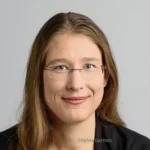Project description
ESCRT-III proteins form supramolecular structures that are critical for membrane remodelling processes across the tree of life. In archaea and eukaryotes, the ESCRT-III proteins assemble into polymers that, together with Vps4, cut membrane tubes and drive essential biological processes such as membrane repair and cell division. The dynamic and highly regulated interaction of ESCRT-III and Vps4 plays a crucial role in cellular processes, making them key to understanding early cellular mechanisms and the evolution of life. The presence of these proteins in archaea suggests that they were part of the last universal common ancestor (LUCA) of archaea and eukaryotes, providing a direct link to the origins of cellular complexity.
Membrane remodelling, particularly during cell division, occurs at molecular scales that challenge our ability to visualise and characterise the proteins involved. Traditional light microscopy is limited by the diffraction limit, which restricts the resolution of fine details in living cells. This is where STED (stimulated emission depletion) microscopy becomes pivotal. By exploiting the principles of stimulated emission to “shrink” the effective point spread function, STED enables us to image structures with a resolution on the order of ~30 nm, far beyond the diffraction limit. This allows us to visualise and track the dynamic assembly of ESCRT-III polymers during the complex process of cell division, providing insights into their spatiotemporal organisation and their interaction with Vps4.
In this project, we will apply STED microscopy to (living) cells to explore the subcellular organisation of the ESCRT-III complexes in real-time, investigating how Vps4 modulates these structures during the critical stages of cell division. Additionally, we will complement this work with atomic force microscopy (AFM) experiments in the lab of Wouter Roos, which will provide a high-resolution, molecular-level view of the mechanical properties and activity of ESCRT-III and Vps4. By combining these advanced techniques, we aim to achieve a deeper understanding of how these proteins drive membrane remodelling and contribute to cellular division processes.
Ultimately, this integrated approach will not only illuminate the roles of ESCRT-III and Vps4 in cellular dynamics but also provide key insights into the evolution of membrane biology and the molecular origins of cellular complexity. This work will be essential for understanding how the molecular machinery of life evolved and how early cellular structures might have contributed to the origin of life.
Additional specifications
We’re looking for a candidate with a MSc in Biophysics or a related discipline. Experience with light microscopy and cell culture is an advantage. Please write a specific motivation letter, not a repetition of your c.v. or a summary of the research project, but instead highlight your relevant personal experiences and explain your motivation to apply for this specific project.

